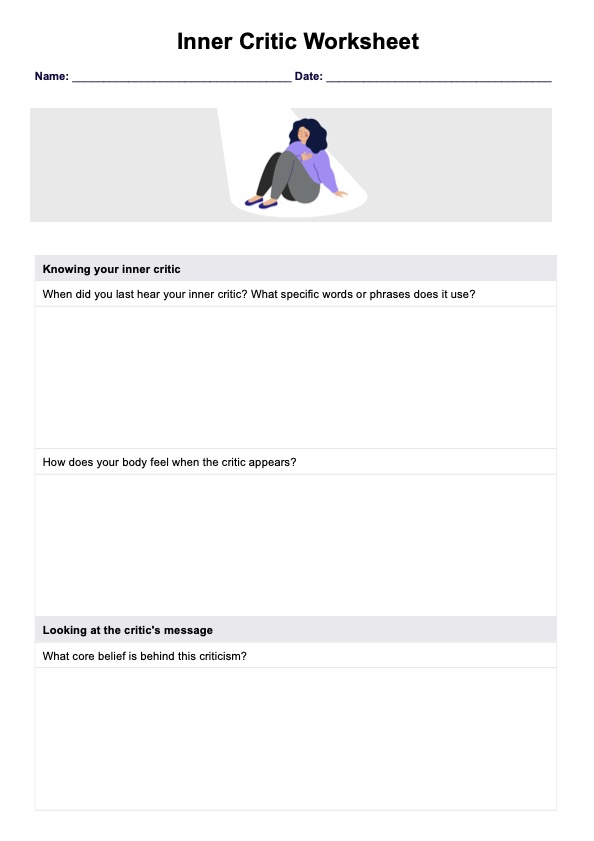Being self-critical refers to the tendency to evaluate oneself negatively, often focusing on perceived flaws or shortcomings. It involves a pattern of thinking that emphasizes personal failures, mistakes, or inadequacies, which can lead to feelings of guilt, shame, or inadequacy.

Inner Critic Worksheet
Learn how to help clients identify, challenge, and reframe their harsh inner critic with this Inner Critic Worksheet PDF template.
Inner Critic Worksheet Template
Commonly asked questions
Self-criticism can be both beneficial and harmful. On the positive side, it can motivate personal growth and improvement by acknowledging areas for change. However, excessive self-criticism can be detrimental, leading to low self-esteem and other concerns. A balanced approach that combines constructive self-reflection with self-compassion is generally healthier.
When speaking to someone who is self-critical, offering support and encouragement is essential. You might say, "I appreciate your efforts and recognize that everyone makes mistakes. It's okay not to be perfect, and I believe in your ability to learn and grow." Emphasizing strengths and accomplishments can help counterbalance negative self-talk and foster a more positive self-image. Additionally, suggesting self-compassion practices or professional help if needed can be beneficial.
EHR and practice management software
Get started for free
*No credit card required
Free
$0/usd
Unlimited clients
Telehealth
1GB of storage
Client portal text
Automated billing and online payments











